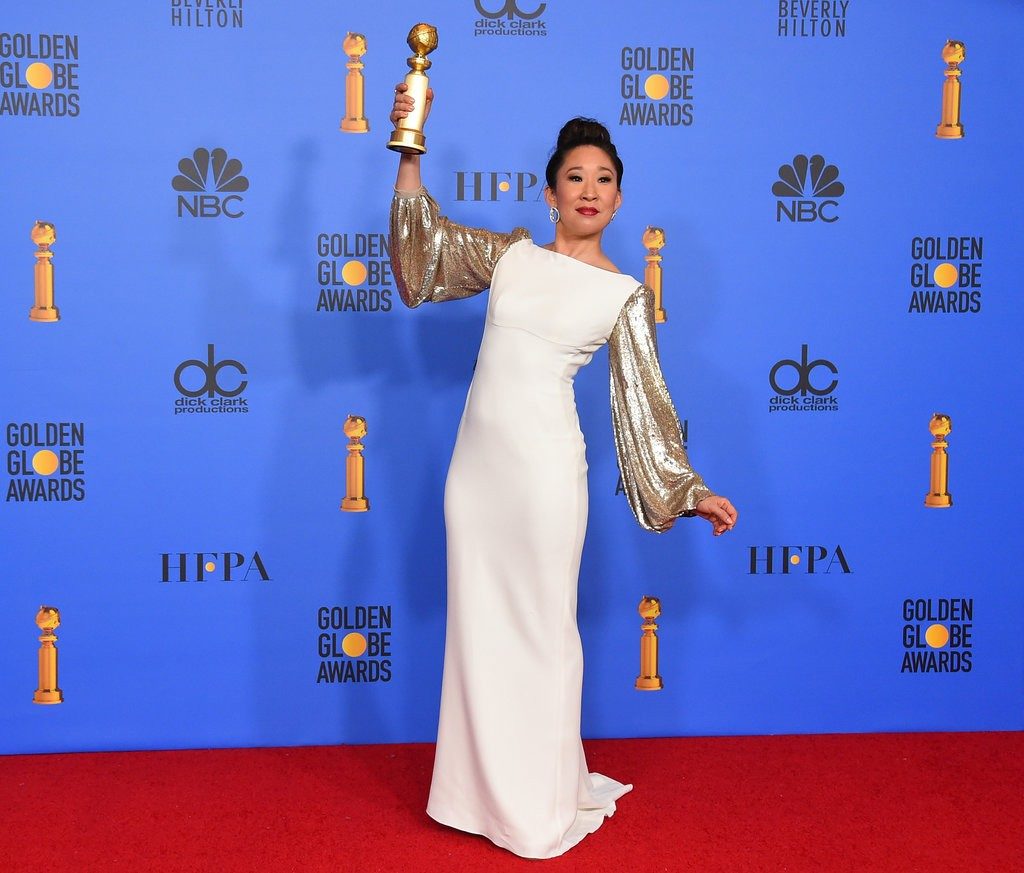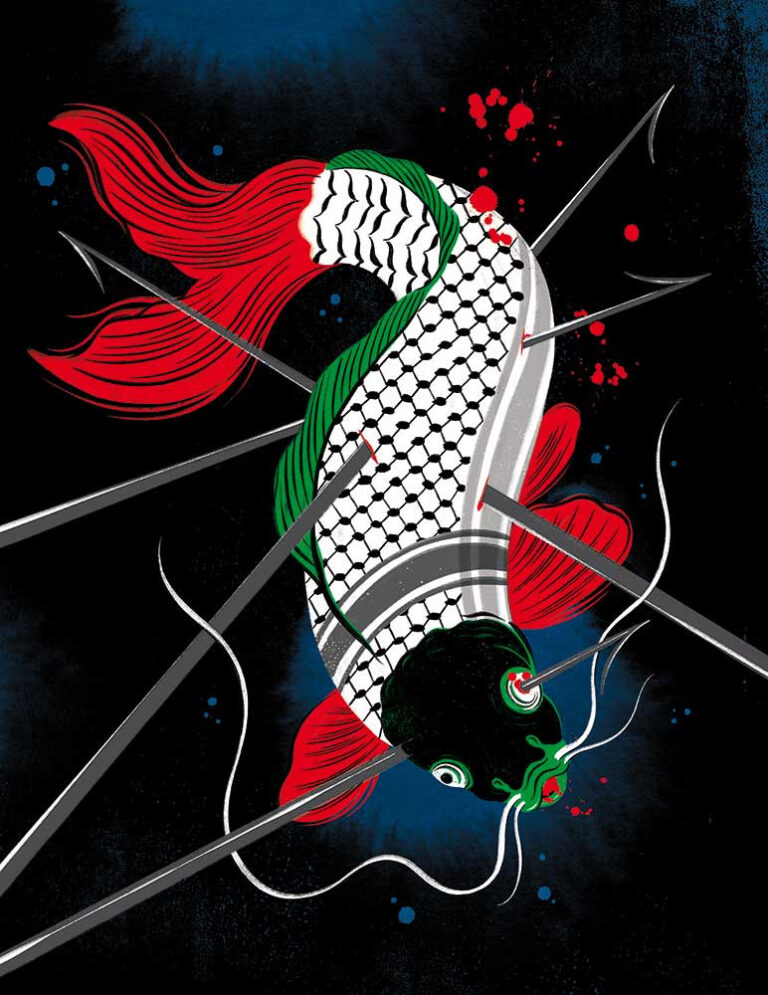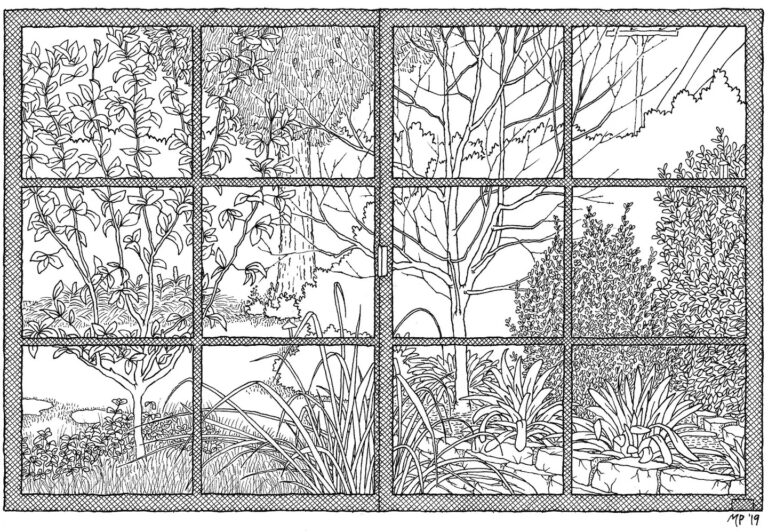Viet Thanh Nguyen writes about the Asian-American family dynamic and struggles in this New York Times Opinions article.

Jordan Strauss/Invision, via Associated Press
For many Asian-Americans, the phrase belongs to the wonderful world of white people we see in the movies and on television.
Is it true that Asian-Americans cannot say “I love you?” The striking title of the writer Lac Su’s memoir is “I Love Yous Are for White People,” which explores the emotional devastation wreaked on one Vietnamese family by its refugee experiences. I share some of Lac Su’s background, and it has been a lifelong effort to learn how to say, without awkwardness, “I love you.” I can do this for my son, and it is heartfelt, but it comes with an effort born of the self-consciousness I still feel when I say it to my father or brother.
Thus, when the actress Sandra Oh won a Golden Globe for best actress in a television drama, “Killing Eve,” perhaps the most powerful part of her acceptance speech for many of us who are Asian-Americans was when she thanked her parents. Gazing at them in the audience, she said, in Korean, “I love you.” She was emotional, her parents were proud, and I could not help but project onto them one of the central dramas of Asian immigrant and refugee life: the silent sacrifice of the parents, the difficult gratitude of the children, revolving around the garbled expression of love.
So many of our Asian parents have struggled, suffered and endured in ways that are completely beyond the imaginations of their children born or raised in North American comfort. This struggle and sacrifice was how Asian parents say “I love you” without having to say it. And so many of us children are not expected to say it either, but instead are expected to express love through gratitude, which means obeying our parents and following their wishes for how we should live our lives.
Our parents, for the most part, told us to get a good education, get a good job and not speak up, things they had to do to survive. They have encouraged, or forced, many of us to become doctors, lawyers and engineers, and to feel ashamed if we do not. What these parents did not do was tell us we could become artists, actors or storytellers, people engaged in seemingly trivial, unsafe and unstable professions. This is why it has been so rare for me, as I give talks in different places around the country, to encounter Asian parents who embrace their children who do not become the “model minority.”
I have met so few who have proudly told me that their children are English majors or have become writers or artists. Perhaps Ms. Oh’s parents were like this. I sometimes wish my parents would have been like this. But I became a writer despite, and perhaps because of, their resistance to the idea, my inarticulate desires pushing against their inarticulate sacrifice, all of it taking place before a backdrop of refugee life and racial reality.
I grew up in the relatively diverse city of San Jose, Calif., in the 1980s. My neighbors were older white working-class people, Mexican immigrants and Vietnamese refugees. Then I went to a mostly white high school, with only a handful of students of Asian descent. We knew we were different, but we found our difference a little difficult to put into words. We called ourselves “the Asian invasion.”
We laughed about that term, but looking back, it was clear that we had absorbed and internalized the racism of American society. In my case, I was lucky that I had never been called a racist slur to my face, although one of my white elementary school classmates, knowing that I came from Vietnam, asked me if had carried an AK-47 and fought in the war. My classmate had been irradiated by the images he — and I, and all my eventual Asian-American classmates in high school — saw. We knew that somehow we were seen by other Americans as invaders of their country, even if it happened to be our country, too.
The irony was that we had not invaded America. America had invaded us, or at the very least had occupied or fought in our countries of origin or heritage. We were here because America was there.
Looking back, what I only belatedly realized was that I needed — we all needed — more stories featuring us. More voices belonging to us. More advocates telling our stories in our way with our faces, our inflections, our concerns, our intuitions. We just needed to be at the center of a story, which would include all the complexities of human subjectivity, not just the good but the bad, the three-dimensional fullness that white people took for granted with the privilege of being individuals.
When it came to mass media’s representations of us — film and television, morning radio disc jockey jokes, journalistic punditry — we got only the bad. We were collectively the villains, the servants, the enemies, the mistresses, the houseboys, the invaders.
As a result, so many of us who watched these distorted images and heard the stupid jokes learned to be ashamed of ourselves. We learned to be ashamed of our parents. And the shame compounded the inability to say “I love you,” a phrase that belonged to the wonderful world of white people we saw in the movies and television.
We had to learn better, but the truth is that Asian parents have to learn better, too. You cannot be proud of your artist and storyteller children only when they win Golden Globes. We honor your sacrifice for us, but you have to encourage your children to speak up as well, to claim their voices, to risk mediocrity and failure, to tell their stories and your stories. At the very least, you cannot stand in their way.
A high school classmate who lived in the elite, mostly white city of Saratoga, Calif., in the 1980s told me that when Asians started moving in — the “good,” professional Asians — white people started moving out. No amount of Asian-American success will change this dynamic of white people fearing that we are the Asian invasion — taking their jobs, breaking the curve, stealing their seats in the Ivy League — until we challenge racism of both the explicit and implicit kinds.
We are still the Asian invasion in the eyes of many, and if we are not as terrifying today as we were in the past, it’s at least partly because many white Americans are more afraid of invasions by Muslims, Mexicans and Central Americans. Many people who might not wish to be our neighbors would at least prefer us to African-Americans.
We cannot accept this as our price of entry into American society. If we must assert ourselves and speak out against racism when it is directed against us, we must also do so when it benefits us. And we do that by challenging and changing the American story. We do it by taking the stage and by telling our own stories, which is really, in the end, our way of saying “I love you” to our parents, our families, our communities and our country.


